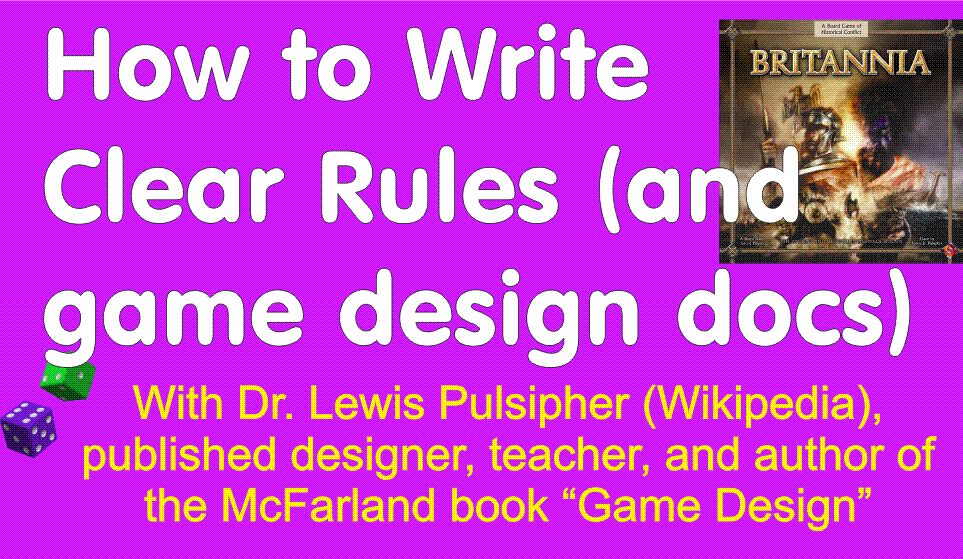All of our game development students must take a history class or two. This requirement comes directly from the local game developers and manufacturers, who want their employees to know something more about history than the average person. This is of particular interest to me insofar as I have a Ph.D. in history.
I'm told that the history classes at my school have proved to be particularly hard for the SGD students, if we can judge from the grades they get. I'm afraid an awful lot depends on the teacher in cases like this: some history teachers think history is a succession of dates and events, whereas history is really a story (the word "story" is in the word "history"). It's a story of how individuals and groups coped with the challenges and opportunities of their time and their physical location. This is why history fascinated me when I was young, and I always wanted to know "what happens next", the same way I do when I read a fictional story.
In a sense, studying history is like watching a gigantic game: games consist of challenges and the actions players take to overcome them, history consists of challenges and the actions people try to take to try to cope with those challenges.
Many games contain stories, and some people (including me) like to play games partly to see "what happens next". The difference, in history, is that "it really happened", it's not made up.
Young people tend to be very uninterested in anything that happened before they were born. For those, I hope they think of history as a kind of (serious) game, and maybe that will make it more interesting. What could people have done differently, how could they have "improved their score"?
I hope students will have teachers who teach history as stories, but if not, please try to treat it as stories and "grin and bear it". Don't let a history class mess you up, because history isn't inherently difficult.
Tuesday, November 13, 2007
Subscribe to:
Post Comments (Atom)
"Always do right--this will gratify some and astonish the rest."Mark Twain
"A designer knows he has achieved perfection not when there is nothing left to add, but when there is nothing left to take away." Antoine de Saint-Exup'ery
"Not everything that can be counted counts, and not everything that counts can be counted." Albert Einstein
"Make everything as simple as possible, but not simpler." Albert Einstein





2 comments:
History became much easier for me to grasp once I understood certain aspects of game design (notably, concepts like tradeoffs, diplomatic mechanics and cause-and-effect that play prominent roles in many strategic games).
Because really, that's what history is. Congratulations, you're in charge of a country; you have to do your best to please the people in your own political faction, work close enough with other factions to actually get things done, keep the various groups of plebes happy (at least enough that they don't revolt), try to keep yourself out of war with neighboring countries while still expanding your borders and resources... all while balancing the always-too-thin-to-do-everything budget. It's like RISK but with a few dozen kinds of resources.
And the thing is, we're still playing by the same rules today as we were thousands of years ago. Sure, technology has increased the stakes of each individual turn, but the mechanics are still largely the same... which is why we study history in the first place, isn't it? Because most situations we face today are just repeats of game turns that happened many times before?
If you haven't seen "Making History" by Muzzy Lane Software, you should check it out... and perhaps recommend it to some of those history professors who still think their subject is all about memorizing dates and names.
History became much easier for me to grasp once I understood certain aspects of game design (notably, concepts like tradeoffs, diplomatic mechanics and cause-and-effect that play prominent roles in many strategic games).
Because really, that's what history is. Congratulations, you're in charge of a country; you have to do your best to please the people in your own political faction, work close enough with other factions to actually get things done, keep the various groups of plebes happy (at least enough that they don't revolt), try to keep yourself out of war with neighboring countries while still expanding your borders and resources... all while balancing the always-too-thin-to-do-everything budget. It's like RISK but with a few dozen kinds of resources.
And the thing is, we're still playing by the same rules today as we were thousands of years ago. Sure, technology has increased the stakes of each individual turn, but the mechanics are still largely the same... which is why we study history in the first place, isn't it? Because most situations we face today are just repeats of game turns that happened many times before?
If you haven't seen "Making History" by Muzzy Lane Software, you should check it out... and perhaps recommend it to some of those history professors who still think their subject is all about memorizing dates and names.
Post a Comment